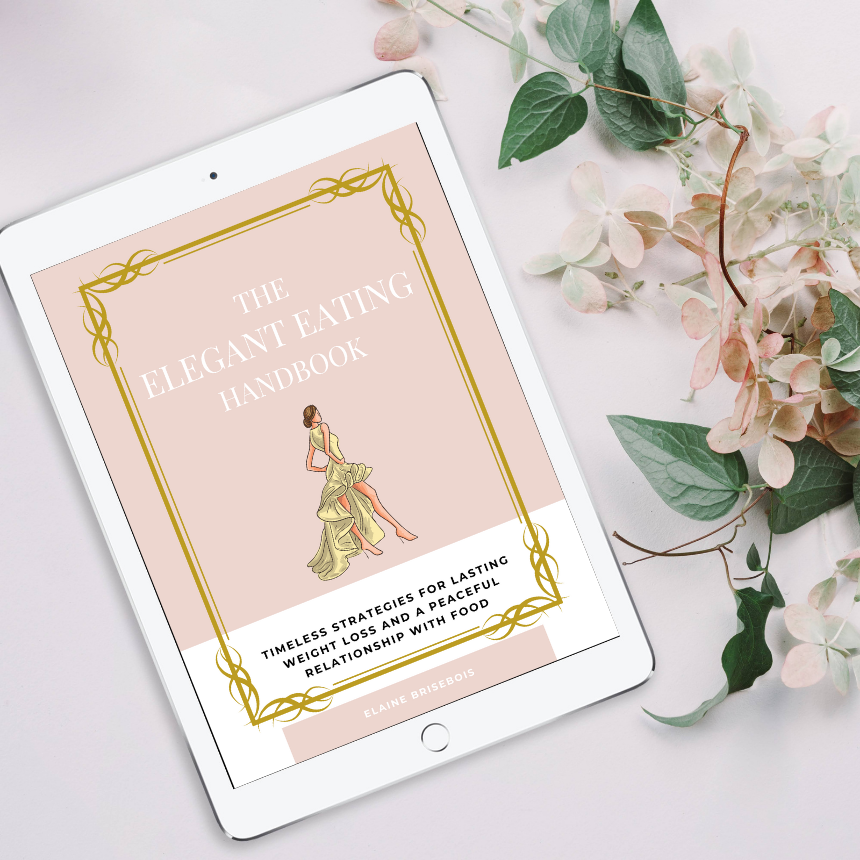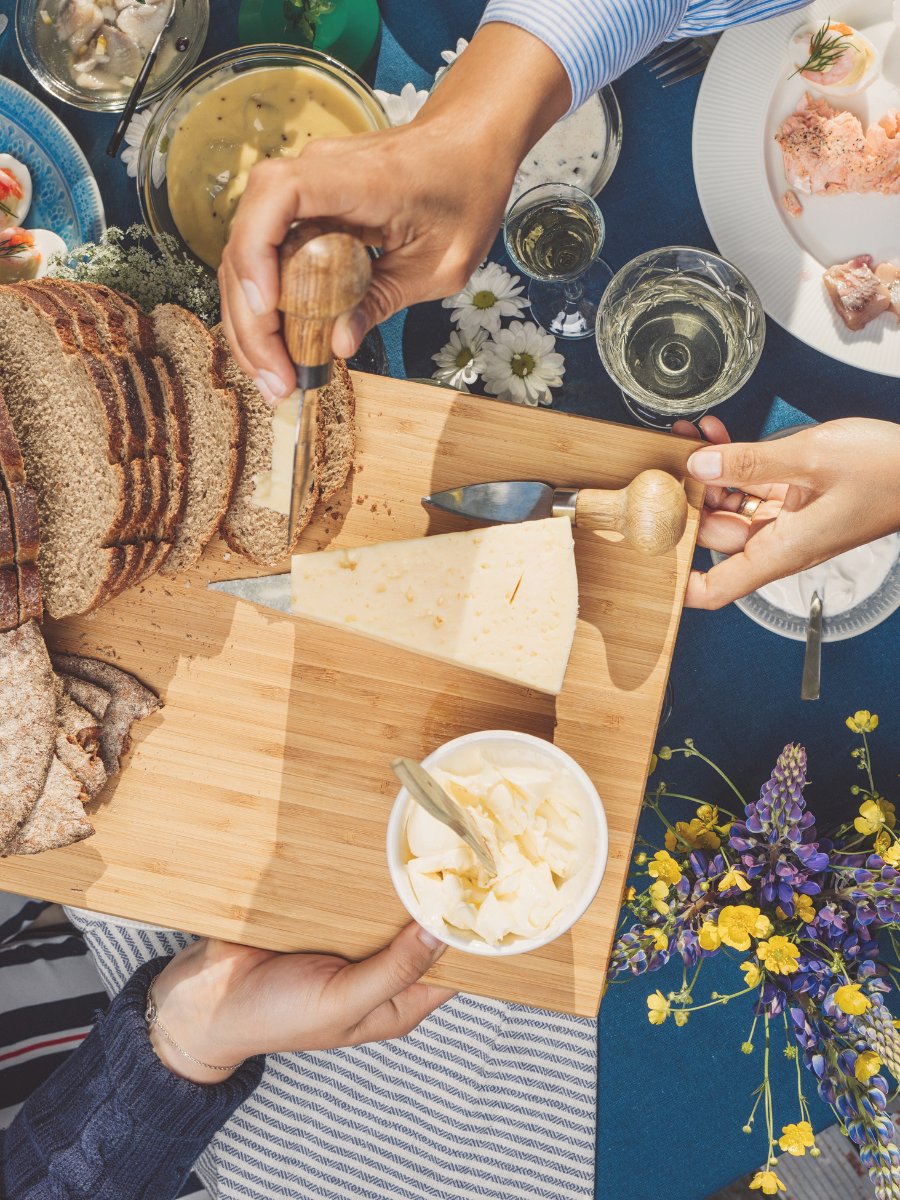I want to let you in on a little secret.
Ready?
Here it goes…
Eating healthy is really quite simple.
There, I said it.
I know this comes with the risk of offending some people, particularly those who have struggled in this area for a long time.
But please let me explain before I go any further, because I say this with great love and respect.
What I really want to convey here is that eating healthy is a 2-step process.
Step number one involves upgrading your food choices.
Once you gain mastery in this area, this part of the equation becomes relatively easy. Naturally in the beginning there’s a bit of a learning curve, and yes, it will take some trial and error and a little investigative work to figure out which foods currently support your body and health goals the best, but once you’ve found your groove this step becomes relatively straightforward, i.e. you no longer have to give it too much thought, beyond perhaps getting creative with new ingredients and recipes.
Step number two on the other hand, is the one that trumps people the most.
This is the “how” component of eating, aka, your eating habits. And let me tell you, those babies run deep. This is why you can diligently eat all of the right foods but still only get mediocre results when it comes to your health goals. Of course there’s also the question of exercise, sleep, and other lifestyle factors, but today I’m focusing solely on the food and eating aspect.
You see, so many people want the magic bullet solution. They want the shiny new meal plan that tells them *exactly* what to eat. And while that can be helpful in the beginning, and yes, you can definitely make great progress by upgrading your foods choices (particularly if the diet was low-grade to begin with), eventually you’ll run smack up against a wall in terms of progress and you may be left scratching your head wondering why. Then you’ll start searching for the next new shiny meal plan or perfect diet that you believe will get you the desired results rather than addressing the root cause of the issue…YOUR EATING HABITS (yes, shouty capitals required).
We must examine our eating habits if we want to stop going around in the same circles.
It’s not about being perfect either. I’m the first to admit that I’m not always able to avoid all of these habits in my own life. Sometimes certain situations come up, and it’s just not possible.
But that’s irrelevant, really. The point is to just be aware that you’re even consciously or unconsciously doing them in the first place, and honestly reflecting on whether they may be preventing you from reaching your own highest health potential. Then you can work on giving them up (to the best of your ability) in your own life.
1) Late Night Eating
Let me first begin by telling you that I’m in no way suggesting that you have to become an “early dinner” person in order to ditch this habit, as I’m certainly not. The truth is, on most nights you’ll usually find me eating between 7 pm and 8 pm, and some nights even later. The idea here is to be done your main meal within 2-3 hours of lying horizontal. You can still eat within this time frame if necessary, but ideally it will be a lighter meal or small snack.
When we go to bed with a stomach full of food, not only is it a recipe for disrupted sleep and indigestion, but it also impedes the process of healing, detoxification, and cellular regeneration that would normally occur during this time of nightly slumber, because energy is diverted towards digestion. Ever notice how much groggier and exhausted you feel in the morning when you do eat late? I know without a doubt if I eat heavier before bedtime I have a much more difficult time crawling out of bed in the morning. And an early morning workout? Forget it.
This may be your norm though, and if so, I challenge you to put it to the test for 3 days by cutting off your eating as suggested above. Notice how much easier it is to get up in the morning (assuming you’re still getting the same amount of sleep), and how much lighter you feel. You might even notice that your BMs are better – and if you don’t normally have one in the morning, you might find that you now do as a result of better digestion.
2) Over Eating
This one is difficult for many people, considering it takes about 20 minutes for our brains to register that we’re full. I often hear from my clients that portioning out meals in the daytime is really easy, but nighttime eating can be more of a struggle since emotional eating can rear its head when they’re not preoccupied by the busy-ness of work. Aim for satisfied, and not stuffed. If you’re tempted to keep picking at more food after you’ve finished dinner, get up and throw yourself into something else. Tidy up and wash the dishes (I have a theory about dirty dishes and overeating!), go for a walk, go take a bath, go brush your teeth, or just shut down the kitchen for the night.
The second part of the overeating equation relates to falling prey to the “If it’s healthy, it doesn’t count” mentality, or believing you can eat as much of it as you want without any portion control. This is simply not true. Here are some foods that are easy to overeat: nuts, dried fruit, almond butter, whole grains, starches of any type, homemade baked goods made with natural sweeteners and gluten-free or whole grain flours, coconut milk ice cream, and fruit (yes, you can overeat fresh fruit but best to choose your battles), to name a few. You can be eating the healthiest of foods, but if you’re constantly eating above and beyond your caloric needs, you will gain weight – not to mention mess up your digestion.
3) On-the-Go Eating
Sit down, relax, and enjoy your food distraction-free. Rushing, stress, worry, and anxiousness are all antithetical to good digestion. When our sympathetic nervous system is activated, aka, “fight or flight” mode, our ability to digest and assimilate our food is greatly reduced. Even eating something as simple as carrot sticks can leave you feeling bloated like a balloon when you eat from this state.
Do the best you can to centre yourself before eating. Take some deep breaths and step away from your computer if you can. If the choice is between wolfing down your lunch to make a quick meeting, or, waiting until the meeting is over before you eat – it’s better to wait it out, even if your stomach is rumbling a bit. It’s important we get into parasympathetic “rest and digest” mode in order to give our bodies a fighting chance to digest the food we’re feeding it. Which brings me to my next point…
4) Constant Eating (aka, Grazing)
So many people never experience the feeling of true hunger because they’re constantly nibbling throughout the day. Of course living in a snacking culture where convenience food is readily available at every turn doesn’t help the matter, but furthermore, some health experts actually tout 5-6 metabolically mapped out meals and snacks per day in the name of “increasing energy”. I highly disagree with this sentiment, and in fact, actually encourage my clients to consider transitioning back to a good old-fashioned 3 (or even 2!) meals per day with minimal to no snacking in between.
There are so many benefits to giving up snacking (and constant grazing), and I actually dedicated a whole post to it here, but they include optimizing digestion and fat burning, upleveling mealtimes and the experience of eating, freeing up mental space that’s otherwise preoccupied with food, increasing energy that’s otherwise thwarted towards digesting yet another meal or snack, and helping you get back in touch with true hunger and satiety signals.
5) Rigid Eating
Too many food rules make Jill a dull girl (or something like that. Let’s just go with it). My point is, obsessing over every little thing you put in your mouth is not only tedious, but also missing the whole point. Food is meant to be enjoyed with great reverence. It’s what nourishes and helps sustain us, and also, literally becomes us. There’s nothing wrong with having high standards for yourself and what you allow to enter “your temple” so to speak, but it shouldn’t come at the cost of wasting your precious time obsessing and agonizing over everything you put in your mouth. The culture of “clean eating” is something that’s been weighing heavily on my mind lately (I’ll write about this later). Right now I encourage you to find the diet that best supports your health goals (which ideally also includes feeling awesome both physically and mentally), then move along and go enjoy your life!
As always, I love hearing from you! In the comments below, let me know which of these eating habits you’re ready to break-up with this year. Are there any other eating habits you would add to the list?

Hi! I’m Elaine, a Certified Nutritionist and Master Certified Health Coach. I support women in achieving their health and body goals while prioritizing a peaceful and balanced relationship with food.

Get a free copy of my handbook!
The Elegant Eating Handbook: Timeless Strategies for Lasting Weight Loss and a Peaceful Relationship with Food.
share with friends
keep reading...





[…] chewing your food, limiting too much liquid with meals, correct food combining, as well as avoiding any of these eating habits come into […]